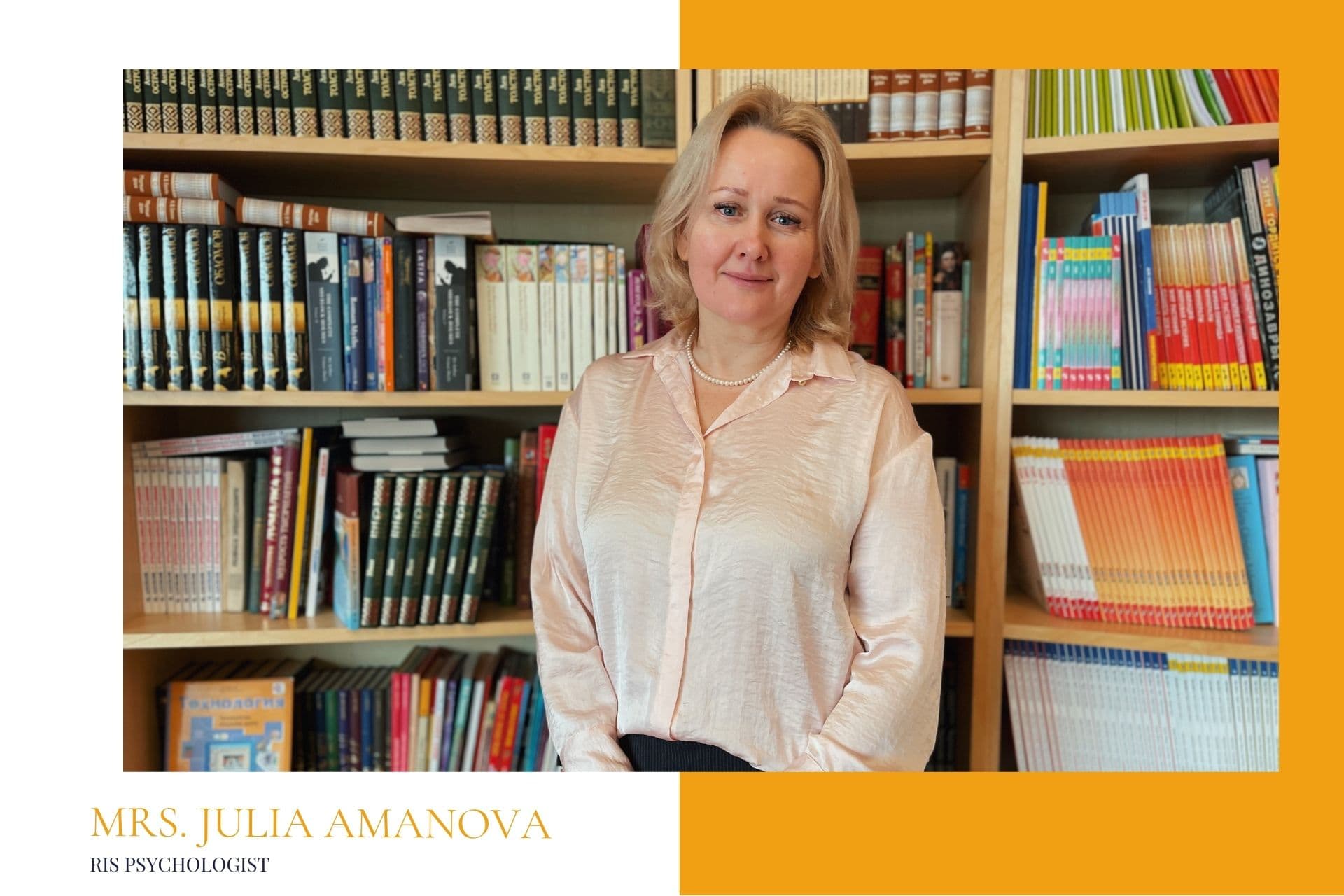At Russian International School we pay great attention to the psychological comfort of our students, creating healthy relationships between students and a friendly atmosphere at school! That is why the school has a daily "Psychological Support RIS", which consists of highly qualified psychologists.
Mrs. Julia Amanova , RIS Psychologist, in her article gives more detailed insight into the role of a psychologist in the educational process and how it affects the success of education.

It would seem that everyone has long been accustomed to the position of a psychologist in an educational institution: children, teachers and parents. However, if asked what is the role of a psychologist in the educational process, most participants of the educational process will answer that the psychologist should conduct diagnostics: incoming and, at best, both current and final, and take part in the analysis of difficult situations.
But if a psychologist genuinely works and does it correctly difficult situations should not arise at all, because the main role of the psychologist is to create a favorable climate within the educational institution to achieve the highest efficiency of the educational process.
This work includes not only diagnostics, but also a number of measures:
1. Observation of interaction of teachers with pupils of educational institution, and healthy correction of this interaction if necessary.
2. Evaluation of the general conditions under which the educational process takes place.
3. Monitoring of the students' emotional state and identification of the adverse factors influencing this state.
4. Where possible, work with the pupils' families.
5. Socialization of the students, including prevention of bullying and other unfavorable social phenomena.
6. Direct work with students at risk (both individual and group, including through extracurricular activities).
7. Prevention of emotional burnout of teachers and employees of the educational institution.
8. Building trusting relationships between all participants of the educational process: employees of the educational institution, teachers, pupils and parents.
This work is usually not visible, but it affects the results of the educational process, its quality and, most importantly, the satisfaction of this process by all its participants.

